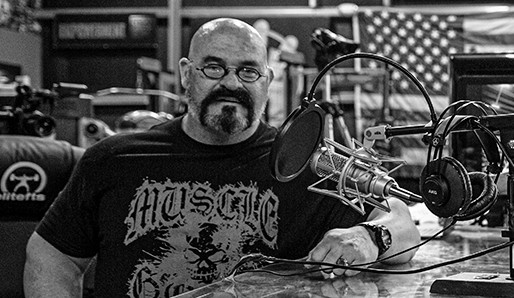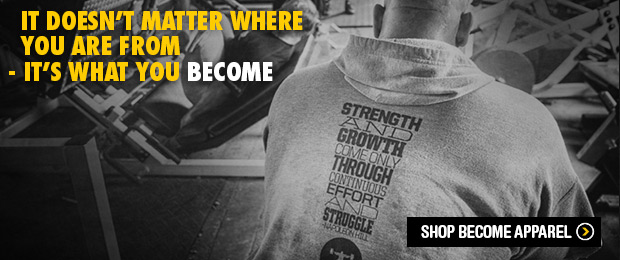
Dave Tate at elitefts has a mantra that makes sense: Live, Learn, Pass on. That has value and is a great copy for a t-shirt. But boy, oh boy, is it hard to do!
I was at the first powerlifting meet that I have attended in a few decades. It was astounding to me to see so little coaching actually going on. There was some... but not nearly enough! It appears that the internet or something (?) has convinced an entire generation that they are perfectly capable of self-coaching. Some people are. But most are not. This was woefully evident to me last Saturday.
The truth is that when one progresses in the sport, one must learn to self-coach more and more as the weight gets heavier. The coaching from the outside must give way to coaching from the inside. And no one, no matter how much they know, can know more about the inside of an athlete than that athlete themselves.
At a higher level, the coach must have taught their athletes how to drive their own bus. If not, the athlete will forever be dependent upon the coach for everything. For motivation, encouragement, wisdom, strategy, tactics, you name it. While this is a great ego stroke for the coach, it penalizes the athlete and robs them of true self-actualization. If you are unclear about what that is, then don't worry... you are nowhere near it. It is way off in your future (hopefully, at least).
The coach that fails to teach an athlete to do for themselves all the requisite details of competition and continues to foster a reliance upon their "knowledge" is a fraud. No coach worth a damn in my book pulls this stunt. Forget that!
A real coach gives the athlete more and more responsibility as the journey unfolds. The athlete gets bigger, and the coach recedes. The torch is passed, in common parlance. The carrot has become the rabbit in less ubiquitous verbiage! The point is that the coach must not lord over their athletes in a condescension. They must accompany their athletes as much as lead them. They MUST, MUST, MUST become vulnerable with their athletes. They must join the struggle, not merely watch from the sidelines. A true coach does not set foot on the field, but nonetheless never leaves it.
A true coach has much to say about an athlete's career, no doubt, but the greatest impact is made early on, hands-on, while the most deeply felt happens late. What is taught first will set the stage for victory or defeat, even if the coach is long gone. The athlete will carry a good coach with them for a lifetime and never really be without them.
But the coach must take an emotional stand with their athletes, and this must be crystal clear to the athlete. If not, the athlete can feel alone, isolated, or even rejected. This never occurs to a well-coached athlete... nor a well-loved child, for that matter. If the coach fails to completely understand this or balks at becoming vulnerable beside and behind their athlete, there is little hope for the total fulfillment of potential.
The team effort is greatest at the beginning and less so at the pinnacle. A great coach grasps this and does not demand to be carried to the top along with their athletes. They unburden the athlete from this onus. They are content with the privilege of having wallowed in the mud of mediocrity with the athlete, only to see them rise to the heights of glory seemingly on their own. But the unseen truth is that they have been there all the time. To make some kind of point to all this, let me state unequivocally, is that there needs to be more coaching at the lower level of sport while fully acknowledging the dearth needed at the highest level.
If anything, the "baton has been dropped" by us coaches at the beginning of our athletes' journey. We tend to glorify our own position too much. Sure, we are necessary, that IS my point, but it is essential to teach the athlete to become their own coach. So, in all honesty now, how many coaches do you know who have spent one single minute teaching their athletes to replace them? Teaching how to become a coach? Or to put it another way, coaching how to coach? I am willing to bet one American dollar that the answer (as sad as it is) is zero. That you know none. To truly pass the torch, we must prepare the athlete to become the coach. This is not a weird concept. It is, however, rare.
I am advancing some ideas about modern coaching here. First, if you are an athlete starting out, resist the temptation to completely self-coach. You will not likely get far. If you are an advanced athlete, resist the temptation to completely rely on a coach. I seem to see too little coaching at the start, and too much at the end!
Secondly, if you are a coach, please try to re-evaluate your role. Learn how to teach "coaching" to your athletes. Trust me, you will not be forgotten! On the contrary, you will become an essential part of who your athlete becomes. They can never forget you! But if you try to inculcate your relevance into them by insisting they are incapable and unable to do without you, then you will look to me like all the shitty coaches I see now who are possessed with their own self-importance and pride. BOO! I'll say that again for impact... BOO! Ask yourself who you are coaching for, anyway. If you don't know, you need to retire! You are a shitty coach. Remember I said that.
Third, think about how vulnerable you are to and with your athletes. I can assure you they will not view it as a weakness! It is necessary! You can not understand them if you live in a world above them. Remember I said that, too!
Lastly, if you coach, please, please do not co-opt your athletes' success. We have had a torch passed to us as coaches from when we ourselves were athletes. Now, it is our turn.
I must admit, my handoff was none too exemplary. But that is precisely why I am adamant about the handoff that I will give my athletes. I vow to do a better job as a coach, mentor, teacher, and ultimately, a friend, than was offered to me.
Well, what say you?









